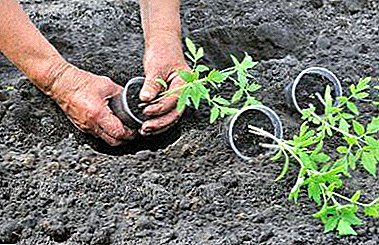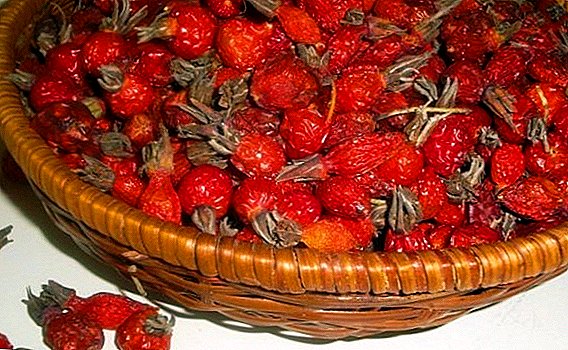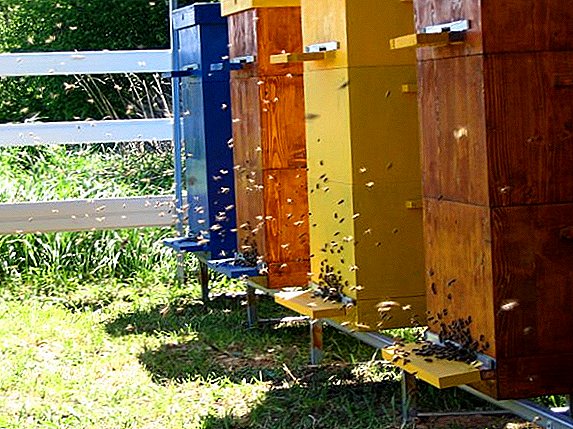
The beneficial properties of raw beets were known in ancient times. So Hippocrates used beetroot to treat infections, inflammations and even blood diseases.
Today in the field of traditional medicine is widely used as the fruits and tops of this root. And dishes from raw beets are successful in home cooking, and even in fine restaurants.
Read more about the beneficial properties of this root. From the article you will learn what the chemical composition of raw and boiled beets.
Is it possible to eat, and how is it beneficial to human health?
Raw beets in the diet - a new and unusual product. Culinary processing (cooking, frying, stewing or baking) is more common for a person. But the moderate use of raw vegetables will significantly improve health. Root vegetables taste sweet because of the increased sucrose content. Maximum health benefits can be obtained by including a raw vegetable in the composition of vitamin salads.
The chemical composition of fresh and boiled vegetables
If the majority of vegetables during cooking lose most of the beneficial micronutrients and vitamins, then beetroot in this case is a happy exception. The only thing that necessarily changes is calorie content. Raw vegetable has 40 kcal per 100 g, and boiled - 49 kcal.
Raw beets - diet vegetable. Per 100 g of product accounts for:
- 1.5 g of proteins;
- 8.8 g of carbohydrates;
- 0.1 g fat.
When cooked, the indicators vary somewhat:
- proteins - 1.8;
- carbohydrates - 10.8;
- fat - 0,0.
Also this useful fruit contains a huge amount of macro - and micronutrients. A total of 100 g of raw beets contains:
 magnesium - 22 mg;
magnesium - 22 mg;- calcium - 37 mg;
- sulfur - 7 mg;
- phosphorus - 43 mg;
- chlorine - 43 mg;
- iodine - 7 mcg;
- potassium - 288 mg;
- sodium, 43 mg;
- manganese - 0.6 mg;
- fluorine - 20 mcg;
- copper - 140 mcg;
- Nickel - 14 µg;
- Zinc - 0.4 mg;
- boron - 280 mcg;
- iron 1.4 mg;
- rubidium - 450 mcg;
- chrome - 20 mcg.
The listed composition of trace elements is far from complete. Also, the root contains amino acids (arginine, histidine), fiber, folic acid and betaine, which gives the vegetable a characteristic color.
On a note. In the process of cooking only 3 vitamins are destroyed (C, B9 and B5). Also, under the action of high temperature, the integrity of solid fibers, fiber, is disrupted. There are no other differences in the number of microelements in raw and boiled vegetables.
Fresh Root Vegetable
Is a vegetable always good for health or in some situations possible harm? Is it necessary to eat beet raw, how much per day should it be eaten to strengthen the body and is it beneficial to eat in unlimited quantities?
Beneficial features
This Root is a natural antioxidant that activates the excretion of toxins from the body, excess salt, harmful cholesterol. Vegetable enhances defenses against dangerous radioactive exposure, and generally strengthens the immune system.
Specific facts about the benefits of raw beets.
- Restoration and renewal of liver cells, improvement of the cardiovascular system.
- Strengthening bone tissue.
- With regular use of beets can improve vision.
- Prevention of prostate adenoma.
- Normalization of the menstrual cycle in women (you can find out about the benefits and harms of beets for a woman’s body here).
- Beetroot juice will help with anemia (lowering blood pressure, preventing blood clots).
Raw beets have a beneficial effect on the work of all internal organs., helps to increase energy reserves and increase efficiency.
Raw root vegetables can be used for food daily, but it is important to comply with the measure. The daily rate of raw product should not exceed 200 g. It is necessary to introduce fresh beets into a normal diet gradually.
Details about which beet is more useful for the body - boiled or raw, read here.
What is the harm?
 Beet contains chlorine, the excess of which causes irritation in the mucous. The symptom of this phenomenon is tickling and pinching in the throat (especially when eating raw vegetables for the first time). These signs usually pass quickly. If the burning process in the nasopharynx is long and acute, this is a symptom of the onset of an allergic reaction to the raw product. Allergies can occur in the form of a rash on the skin, swelling of the nasopharynx, swollen lymph nodes, chills and fever.
Beet contains chlorine, the excess of which causes irritation in the mucous. The symptom of this phenomenon is tickling and pinching in the throat (especially when eating raw vegetables for the first time). These signs usually pass quickly. If the burning process in the nasopharynx is long and acute, this is a symptom of the onset of an allergic reaction to the raw product. Allergies can occur in the form of a rash on the skin, swelling of the nasopharynx, swollen lymph nodes, chills and fever.
It is forbidden to combine raw beets and garlic, as this increases the load on the heart. In the tops of the root can accumulate nitrates, if the vegetable grows in environmentally disadvantaged regions. Nitrates provoke poisoning of the body. It accumulates in the area near the tops. Therefore, before eating, be sure to trim the tip.
More about how much and in what form it is better to eat beets, as well as what benefits and harm from its use for human health, read here.
Contraindications for use
Important! Raw beets can harm people suffering from acute diseases of the gastrointestinal tract, as well as internal bleeding. Heartburn, colitis, gastritis with high acidity, irritable bowel syndrome, flatulence - with such ailments dishes from raw beets are banned.
But for the purpose of combination therapy, micro doses of beet juice can be prescribed.
In what other situations is a raw vegetable banned?
- Urolithiasis, renal failure, kidney stones. The product provokes the movement of stones, their increase and weighting.
- Diabetes.
- Tendency to diarrhea.
- Hypotension. There is a risk of uncontrolled pressure reduction.
- Osteoporosis (the product promotes the excretion of calcium from the body).
Beetroot perfectly retains its beneficial properties during long-term storage. This is especially noticeable in spring, when there is an acute shortage of vitamins. Root crop will be an excellent help to strengthen the health of the whole family. Raw beets are allowed to consume no more than 200 g per day.


 magnesium - 22 mg;
magnesium - 22 mg;









